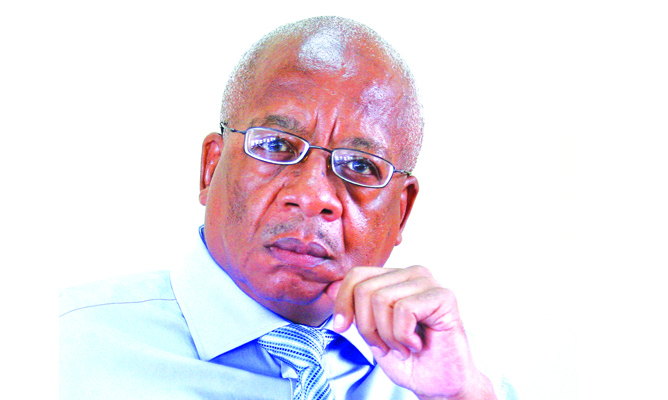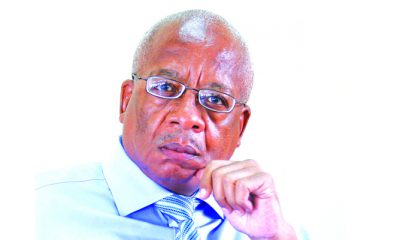Source: Opposition should ignore petty, empty criticism – NewsDay Zimbabwe October 20, 2017
Removing Zanu PF will be no mean task. And, it’s not the time to misdiagnose what’s at play and what is takes to bring functional democracy to Zimbabwe — not the subversion of democracy we have today.
By CONWAY TUTANI
Who does not remember the soap opera of 2008 when the loser became the winner after the regime disdainfully withheld the election results for a whole month? And another farcical drama in 2013 as the regime brazenly withheld the voters’ roll in one of the most opaque elections in Zimbabwe?
In trying to unpack this, respected political analyst Dr Pedzisai Ruhanya wrote this week: “The study of authoritarian breakdown must not focus on the final collapse of authoritarian regimes, but must take into consideration the ‘incremental process of authoritarian erosion’ and the opposition’s contribution to it (Stepan, 2001). Our analysis spectacles in observing what’s happening in Zimbabwe, especially in Zanu PF, should be guided by earlier studies on how such regimes collapse.”
Yes, Ruhanya has rightly pointed out the importance of focusedly, patiently and indefatigably chipping away at the regime because it can never be a stroll in the park. The recent Cabinet reshuffle clearly illustrates the nature of the self-perpetuating system with basically the same faces retained or elevated despite manifest evidence of failure and corruption; and the main players continuing in office beyond what is considered the normal limit. Repressive regimes have the highest sense of self-preservation.
We need such empirical contributions as expounded by Ruhanya to put things into perspective, to clear issues of obscurity so as not to jump to the false self-serving conclusion that the opposition has totally failed. It’s imperative to look at things in totality or holistically, not selectively or conveniently. It’s not making for excuses for the opposition, but unpacking how such situations have unfolded or unravelled in history to show that the Zimbabwean opposition has not uniquely, spectacularly and monumentally failed.
The Hungarian opposition had its political gains reversed by the oppressive Soviet system in 1956. The very same Soviet system also clamped down on the then Czechoslovakia in 1968. It was not until 1989 when these two nations were finally free of the Soviet chokehold.
But not all people can comprehend that attaining democracy from repression is “an incremental process”. This is beyond the knowledge and understanding of, for instance, one bitter “Sikhosana”, who declared: “Tsvangson [main opposition MDC-T leader Morgan Tsvangirai] is a failed politician, period.” Not having a sense of history is a serious handicap. Without that historical perspective, one should stop masquerading as a political commentator, period.
This tendency to be overcritical of ourselves is quite prevalent among some educated Zimbabweans who — being enamoured with and idolatrous of everything European as superior to everything African — latch onto every political development in the West without interrogating its applicability and desirability in Zimbabwe. Their latest political fad is to cite the winner of Austria’s election this week as conclusive evidence that he pulled off an unlikely victory merely because he is young unlike Zimbabweans who have been constantly voting for “failed” old candidates.
This, to say the least, is grossly misleading and insulting to long-suffering Zimbabweans. Austria, as a functional democracy, is worlds away from Zimbabwe, a despotism — government by a singular authority, either as a single person (like President Robert Mugabe’s self-declaration of himself as “one centre of power”) or tight-knit group (like Zanu PF’s G40 faction), which rules with absolute power, especially in a cruel and oppressive way. Zanu PF ticks all these boxes.
Zimbabwe is much more of China than Austria. Zimbabwe is under the Zanu PF dictatorship in the same way China is under the totalitarian rule of the Communist Party. It goes without saying that had the Austrian youth won in Zimbabwe, he would not be allowed to take office.
And even before getting to that, the Zanu PF regime would make sure that he would not win in the first place. So, let’s not over-excitedly and fallaciously draw naive and ignorant parallels. Let’s not compare chalk and cheese if we are to be true analysts, not spew criticism that is not called for by the circumstances, criticism without justifiable reasons, making assertions without any valid grounds.
In that vein, there have been growing calls — from the same quarters again — that the solution to Zimbabwe’s problems lies in totally replacing old leaders with youthful ones; that youths are the future. Some Zimbabweans — presumably youthful ones — have been celebrating on social media the election in Austria of 31-year-old Sebastian Kurz as Prime Minister as proof positive that youths — and youths alone — are the future.
But does youthfulness necessarily mean progressiveness? Wrote the New York Times in an editorial: “An anti-immigrant, anti-Muslim party won the Austrian elections on Sunday, and its leader might form a government with a party founded by ex-Nazis.” Did those approving Zimbabweans miss that serious indictment?
Continued the editorial: “… the leader of the victorious People’s Party, Sebastian Kurz, 31, has tried to put a fresh, young face on his stodgy conservative party … But there’s nothing forward-looking about his platform, which taps into the fears that the 90 000 immigrants Austria took in from 2015 to 2016 are siphoning away social benefits from hard-working Austrians, and that Muslims pose a cultural and security threat.”
There you are: Kurz represents more — or the worst — of the same, so the celebration of his electoral victory by some Zimbabweans — educated for that matter — is shockingly uninformed and totally misplaced. Kurz might as well be the equivalent of Zanu PF youth league leader Kudzanayi Chipanga, also in his 30s, who is now the face of the status quo as he swears to die for the First Family.
Can anyone “accuse” Chipanga of promoting fresh ideas? No, he is “not guilty” of that. Neither is Kurz, a conservative to the core, not a progressive. It’s not about age per se, but attitude. It’s not about any and all youths. So, these “educated” people are doing things in the wrong order instead of actually finding out what the problem is before they try to solve it. The English aptly describe people with such illogical tendencies as “putting the cart before the horse”.
Fortunately, a lot of Zimbabweans see the wisdom in doing things in the right order. Observed “The Great Work”: “If anyone wants to run the country, they should humble themselves and join politics. If they think politics is for lesser minds, then let lesser minds run the country. If anyone is good enough to run the country, he shall not get it on a silver platter.”
Indeed, the opposition — the genuine opposition — should ignore petty, empty, gratuitous criticism and get on with the no mean, incremental task of removing Zanu PF.


COMMENTS